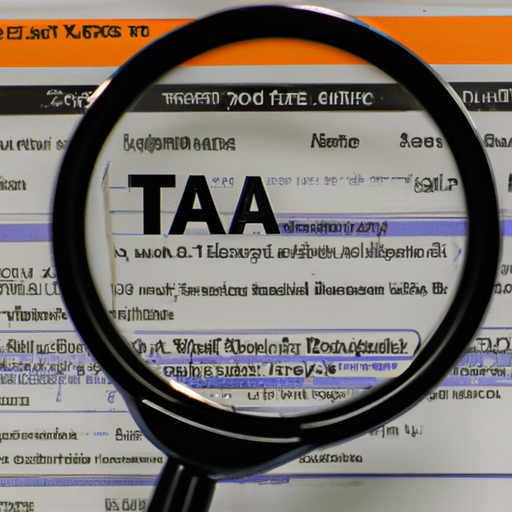Are you unsure about offshore tax compliance? As a business owner or high net worth individual, it’s essential to understand the complexities of this area of law. By staying compliant with offshore tax regulations, you can reduce your tax burden and avoid any potential legal consequences. In this article, we will delve into the details of offshore tax compliance, addressing common concerns and providing guidance to ensure that you meet all the necessary requirements. With the help of our experienced tax attorney, you can navigate through the intricacies of offshore tax compliance and protect your financial interests. So, let’s dive in and explore the world of offshore tax compliance together.
Offshore Tax Compliance
Offshore tax compliance refers to the practice of ensuring that individuals and businesses comply with the tax laws and regulations of their home country in relation to offshore financial activities. This includes reporting income, assets, and investments held in offshore accounts, as well as paying the required taxes on those assets.
What is Offshore Tax Compliance?
Offshore tax compliance involves the proper reporting and payment of taxes on income, assets, and investments held in offshore accounts. It requires individuals and businesses to disclose these offshore activities to tax authorities and fulfill their tax obligations in their home country. Non-compliance with offshore tax regulations can result in serious legal and financial consequences.
Why is Offshore Tax Compliance important?
Offshore tax compliance is important for several reasons. Firstly, it is a legal requirement in most countries for individuals and businesses to accurately report and pay taxes on their income, regardless of where it is earned or held. Failing to comply with these regulations can lead to hefty fines, penalties, and even criminal charges.
Moreover, offshore tax compliance ensures a fair and equitable tax system. By properly reporting offshore income and assets, individuals and businesses contribute their fair share to public services and infrastructure development. This helps maintain social stability and promote economic growth.

Benefits of Offshore Tax Compliance
There are several benefits to ensuring offshore tax compliance. Firstly, it reduces the risk of legal and financial penalties. By accurately reporting and paying taxes on offshore income and assets, individuals and businesses can avoid the scrutiny of tax authorities and potential audits.
Secondly, offshore tax compliance can protect one’s reputation and business interests. Non-compliance can lead to negative publicity and damage to one’s professional standing. By being transparent and compliant, individuals and businesses can maintain a positive image and build trust with their stakeholders.
Additionally, offshore tax compliance can provide peace of mind. Knowing that one is fulfilling their tax obligations and operating within the bounds of the law can alleviate stress and allow individuals and businesses to focus on their core activities.
Common Offshore Tax Compliance Issues
There are several common offshore tax compliance issues that individuals and businesses may face. These include:
-
Failure to report offshore income and assets: Many people may be unaware of their obligation to report income and assets held in offshore accounts. This can lead to unintentional non-compliance and potential legal consequences.
-
Tax evasion schemes: Some individuals and businesses may engage in complex schemes to hide income and assets offshore in order to evade taxes. These schemes are illegal and can result in severe penalties if uncovered.
-
Lack of understanding of tax laws: The intricacies of offshore taxation can be complex and confusing. Without proper guidance and knowledge of the tax laws, individuals and businesses may inadvertently violate tax regulations.
-
Inaccurate reporting: Even with the intention to comply, errors in reporting offshore income and assets can occur. These errors can trigger audits and penalties if not rectified.

Understanding Offshore Tax Havens
Offshore tax havens are jurisdictions that offer favorable tax benefits and financial secrecy to individuals and businesses. These jurisdictions typically have low or no tax rates, strict banking secrecy laws, and relaxed regulations on financial transactions. While offshore tax havens can be used legally for legitimate purposes, they can also be attractive to those seeking to evade taxes or engage in illicit financial activities.
It is important to note that simply having offshore accounts or assets in a tax haven is not illegal. The legality of offshore activities depends on proper reporting and compliance with tax regulations in one’s home country.
The Role of Offshore Tax Advisors
Offshore tax advisors play a crucial role in ensuring offshore tax compliance. These professionals are well-versed in the intricacies of offshore taxation and can provide guidance and expertise to individuals and businesses. They help clients understand their tax obligations, navigate complex offshore tax laws, and develop strategies for tax optimization within legal boundaries.
Offshore tax advisors also assist in the preparation and filing of accurate tax returns, ensuring compliance with reporting requirements. They can provide ongoing support and advice to help clients stay up to date with changing tax regulations and avoid potential pitfalls.
Offshore Tax Compliance for Businesses
For businesses, offshore tax compliance involves a range of considerations. This includes the proper reporting of offshore earnings, compliance with transfer pricing regulations, and adherence to tax structuring requirements. Businesses must ensure that they accurately report their global income and assets, apply the correct tax rates, and fulfill their obligations to tax authorities.
Offshore tax compliance can also involve strategic tax planning to optimize tax liabilities and minimize exposure to potential risks. This may involve establishing offshore entities, utilizing tax incentives and exemptions, and structuring transactions in a tax-efficient manner. By working with experienced offshore tax advisors, businesses can navigate these complexities and maximize their tax advantages legally.
Offshore Tax Compliance for High Net Worth Individuals
High net worth individuals often have complex tax situations due to their wealth and international financial activities. Offshore tax compliance for these individuals involves reporting income, assets, and investments held in offshore accounts, as well as managing estate planning and wealth preservation strategies.
High net worth individuals may have assets in multiple jurisdictions, which can create complexities in terms of tax reporting and compliance. Offshore tax advisors can assist in optimizing tax strategies, ensuring compliance with cross-border tax regulations, and managing risks associated with offshore holdings.

Key Steps for Offshore Tax Compliance
To ensure offshore tax compliance, individuals and businesses should follow these key steps:
-
Understand tax obligations: Familiarize yourself with the tax laws and regulations of your home country regarding offshore income and assets. Seek professional advice if necessary.
-
Keep accurate records: Maintain detailed records of offshore income, assets, and investments. This will help ensure accurate reporting and facilitate any potential audits or inquiries from tax authorities.
-
Report and pay taxes: Disclose all offshore income on your tax returns and pay the required taxes. Use proper reporting forms and disclose any required information regarding offshore accounts.
-
Seek professional guidance: Work with experienced offshore tax advisors who can provide expert advice, help with tax planning, and ensure compliance with all applicable tax laws.
Potential Penalties for Non-Compliance
Non-compliance with offshore tax regulations can result in severe penalties and consequences. These can include:
-
Monetary fines: Tax authorities may impose significant financial penalties for failure to comply with offshore tax regulations. The amount of fines can vary depending on the severity of the non-compliance.
-
Criminal charges: In cases of intentional tax evasion or fraud, individuals and businesses may face criminal charges, which can lead to imprisonment and further financial penalties.
-
Damage to reputation: Non-compliance with offshore tax regulations can damage one’s personal or business reputation. Negative publicity and loss of trust can have long-lasting consequences.
-
Loss of assets: Tax authorities may seize offshore assets and accounts in cases of non-compliance. This can result in significant financial losses and disruption to personal or business operations.
Frequently Asked Questions
-
Can I legally have offshore accounts and assets?
- Yes, it is legal to have offshore accounts and assets as long as you accurately report and comply with tax regulations in your home country.
-
How can offshore tax compliance benefit my business?
- Offshore tax compliance can protect your business from legal and financial penalties, preserve your reputation, and ensure a fair and equitable tax system.
-
What are common offshore tax compliance issues for high net worth individuals?
- High net worth individuals may face challenges in accurately reporting and managing their offshore income, navigating cross-border tax regulations, and optimizing tax strategies.
-
What are the potential penalties for non-compliance with offshore tax regulations?
- Non-compliance can result in monetary fines, criminal charges, reputational damage, and loss of assets.
-
How can offshore tax advisors help with compliance?
- Offshore tax advisors provide expertise, guidance, and support in understanding tax obligations, navigating complex regulations, and developing tax optimization strategies.










